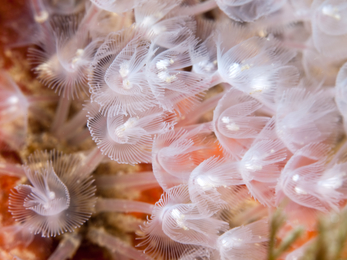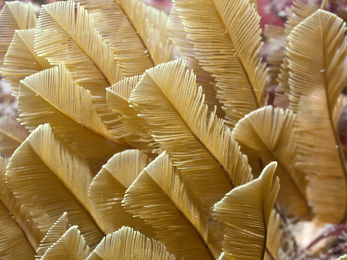Dorset Seasearch
Mapping the seabed with Dorset Seasearch
Volunteer divers have been contributing to our knowledge of Dorset's seabed habitats and species for over 20 years and the information is used in a variety of ways - to help map seabed habitats, to identify potential protected areas, to influence fishery management decisions and to inform the licensing of developments in the marine environment. The acquisition of detailed remote-sensing data (see DORIS) marked the start of a new chapter in Dorset Seasearch. enabling divers to accurately target a huge number of newly revealed seabed features, making the survey much more efficient as well as opening up new dive-sites in Dorset, many of which are sure to become classic dives.
Contact the Seasarch Coordinator
Contact the Seasearch Coordinator via email dorsetseasearch@gmail.com
or visit the Seasearch website.
A report based on Dorset Seasearch 1995-2004 is available on CD - contact the Dorset Seasearch Co-ordinator to request a copy.
How to become a seasearcher
There are three types of courses available:
-
Seasearch Observer - for divers new to marine recording in British and Irish waters
-
Seasearch Surveyor - for experienced recorders who want to increase the value of the results
-
Special Interest Courses - a range of ID and techniques courses for people who want to expand their knowledge
-
Course Costs
The cost of the courses varies depending on venue, costs incurred and if there is any local subsidy or diving involved. As a rough guide one-day courses cost £40-£50 and weekend courses, including diving, £80-£90.
For more detailed information, visit the national Seasearch training page here.
2023 Seasearch Dive Dates
12/13 June from Swanage with Swanage Boat Charters
13/14 July from Portland with Scimitar Diving
5/6 August from Portland with Scimitar Diving
Please contact dorsetseasearchdiving@gmail.com for more details of the dives and how to book.
Dorset Seasearch highlights of 2020, 2021 and 2022
- 87 dives were recorded in the Dorset region and six for Hampshire and Isle of Wight and 35 taxa of conservation interest were recorded by Dorset Seasearch
- The diving year got off to a slow start with the lockdown and travel restrictions in place until shore diving became practicable in June and forms were submitted for intertidal walks and snorkel surveys which all provided useful data on sublittoral fringe habitats.
- Visits to the extraordinary habitats on Long Ledge in Lyme Bay, squeezing in four dives through the season
- 2020 saw many idle cruise ships anchored in Weymouth and Poole Bay and concern was raised as to their impact. Natural England funded Dorset Wildlife Trust to commission a multibeam sonar survey of selected areas and their report provided dramatic images of anchoring impacts on the seabed.
Dorset Seasearch Annual Summary Report 2020
Dorset Seasearch Annual Summary Report 2021
Dorset Seasearch Annual Summary Report 2022
Join Seasearch on social media
Join the Dorset Seasearch Facebook group or follow us on Twitter @dorsetseasearch
Dorset 3Deeper
Monitoring seabed habitats is full of challenges – one of the biggest is underwater visibility. However, in 2021 Dorset Wildlife Trust became the winners of the Sea-Changers 2021 Innovation Fund. This huge win allowed us to use a revolutionary method of monitoring change in underwater habitats.
Dorset 3Deeper video (https://youtu.be/T7kIXh8EtbY)
Peter Tinsley / Dorset 3Deeper video








